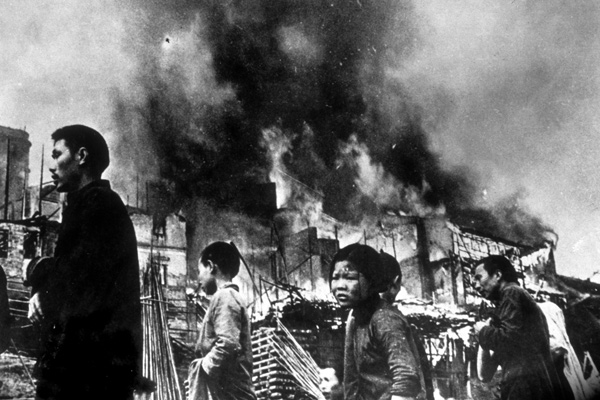The Sino-Japanese struggle that began in 1937, two years before the rest of the world plunged into war, is not as unknown as Rana Mitter, a professor of Chinese history and politics at Oxford, contends in this comprehensive new book. His copious notes, after all, display how well that conflict has been studied by many scholars. But in the sense that few Westerners under the age of 80 can string more than two sentences together about those terrible eight years, he is right.
It is a big story, and for the most part Mitter tells it well. The scene — China — is vast. Two competing leaders, Chiang Kai-shek and Mao Zedong, dominate it. In the wings are Stalin, Roosevelt and Churchill who, once the war began for them in the Soviet Union, the Pacific and Europe, brought China on to the international stage — just enough to keep Japan at bay on the Asian mainland — but treated Chiang Kai-shek’s regime like a third-rate power.
The elements that always mark Chinese history are present: famine, great suffering and death — of between 14 and 20 million; endemic official corruption; movements of millions from one part of the country to another; and the stoicism of badly-fed and ill-clothed soldiers.
We learn about someone rarely noticed: the handsome, weak, ambitious and pathetic Wang Jingwei, who challenged Chiang for national leadership, lost, and cast in his lot with the Japanese, who used him, while making guileful concessions to his demands for what China should look like when the war ended.
Mitter deftly sketches the plight of Chinese intellectuals, who wondered where to place their loyalties, and were persecuted if they chose the Communist side. This particular matter preoccupied the Americans sent to observe Mao at close quarters; they fell for what the journalist Edgar Snow had already called Mao’s ‘Lincolnesque’ charm and charisma, without realising what he was creating in his domain.The

Magazine articles are subscriber-only. Get your first 3 months for just $5.
SUBSCRIBE TODAY- Free delivery of the magazine
- Unlimited website and app access
- Subscriber-only newsletters







Comments
Join the debate for just £1 a month
Be part of the conversation with other Spectator readers by getting your first three months for £3.
UNLOCK ACCESS Just £1 a monthAlready a subscriber? Log in